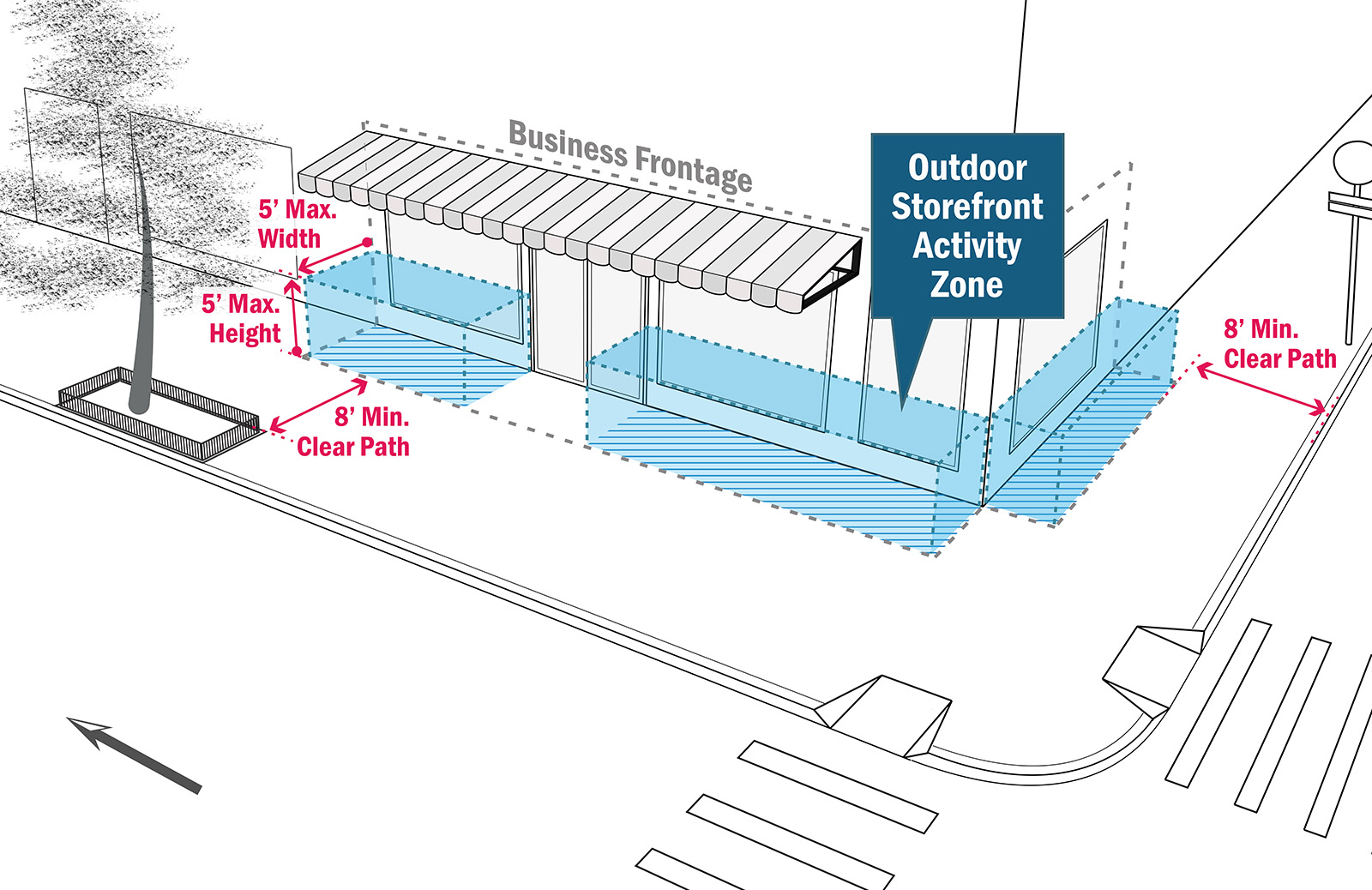
Open Storefront guidelines (Mayor’s Office)
Oct. 28, 2020 By Allie Griffin
Small business owners will soon be able to expand their storefront onto the sidewalk as part of a new Open Storefronts initiative the City will launch on Friday.
Retail shops will be able to sell their wares on sidewalks in front of their storefronts from Oct. 30 through Dec. 31 — just in time for the holiday season, Mayor Bill de Blasio announced Wednesday.
In addition to retailers, repair shops, personal care services and laundry services can also use sidewalk space for seating, queuing or displaying dry goods under the Open Storefronts program.
The initiative aims to help more than 40,000 small businesses in a similar way that the Open Restaurants program helped thousands of restaurants across the five boroughs.
“Our Open Restaurants program … turned out to be something that really worked for New Yorkers,” de Blasio said during a press briefing. “Let’s apply that same idea to small businesses — retail businesses — all over the five boroughs that need additional business to survive.”
The program is modeled after the Open Restaurants program. Likewise, businesses located on existing Open Streets: Restaurants — that are cut off to most traffic — will be able to sell their products on the closed streets as well.
Multiple businesses on the same block can also join together to apply for an Open Street designation to turn their roadway over from car usage to ad hoc market usage, de Blasio said.
Shops must follow certain guidelines, such as maintaining an eight-foot path for pedestrians along the sidewalk and bringing in all equipment, furniture and goods indoors when closed.
Local Business Improvement Districts have been pushing the City for more opportunities for retailers similar to the Open Restaurants initiative and applauded today’s announcement.
“The future of our neighborhoods depends on how nimble, creative, and strategic we are in our decision-making today,” said Jaime-Faye Bean, Executive Director of Sunnyside Shines BID. “New Yorkers need a safe outlet to shop and experience the upcoming holidays in a festive fashion, and our retailers and local artisans desperately need the lifeline this program provides.”
Businesses owners can apply for an Open Storefront permit and self-certify online by submitting a simple form.
5 Comments

Soon we will resemble Calcutta and the work of the Democrats will be complete.
This is about outdoor dining, not Calcutta. It’s a shame you don’t support local businesses, but I’m happy they can get more support during the holidays.
Hey Einstin! How’s that going to work with the delvery bikes/scooters that already almost always run down pedestrians to get back for their next order? Sidewalks are already too crowded!!! Just put tables up on the ROOF!! You can social distian on the property your already renting without taking up the sidewalks!!! If up there then you don’t have to worry about COVID infecting others!!! Cause NEWS FLASH!!! You can’t eat through a mask! So keep YOUR patrons on YOUR roof! And we the pedestrians can have room to avoid your delivery death traps!
Can I put my recliner and flat screen television on the street in front of my house ( which I pay property tax) and block everyone trying to get by, I mean like Joe Biden says ” come on man” I mean there is not going to be anywhere for the pedestrians to walk.
It’s really starting to look like a 3rd world city!!!